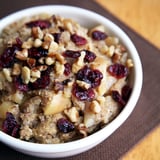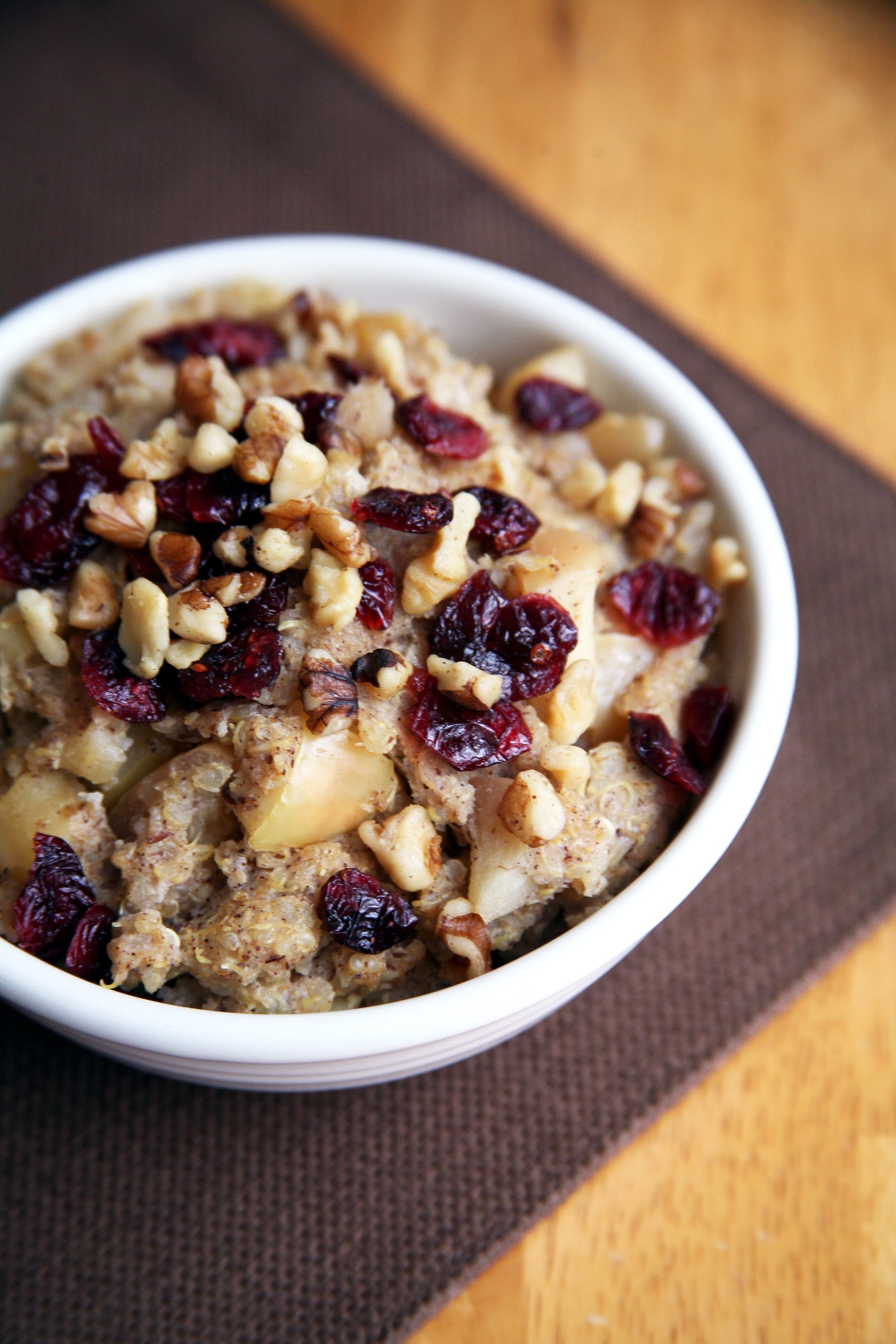

I love oatmeal just as much as the next person (I'm sure you know about my overnight oats obsession), but oats are not as high in protein as you may think. Yeah, you can stir in protein powder or peanut butter, add flax meal and walnuts to increase this essential macronutrient in your bowl, but on its own, oatmeal isn't the best grain if you're trying to fill up on protein. Now quinoa? That grain has it all!
Before you shake your head no for eating quinoa for breakfast instead of oatmeal, let's compare the two. Below is the nutritional information for a typical serving size of uncooked grain. A typical serving size of quinoa is one-quarter cup and a serving size of rolled oats is half a cup. You can see that the oatmeal is higher in calories and carbs than the quinoa, and lower in fiber and protein.
| Calories | Fat (g) | Carbs (g) | Fiber (g) | Protein (g) | |
|---|---|---|---|---|---|
| 1/4 cup uncooked quinoa | 170 | 1.5 | 32 | 5 | 6 |
| 1/2 cup uncooked rolled oats | 180 | 3 | 33 | 3 | 5 |
In case you want to compare equal portions of cooked whole grain, check out this comparison:
| 1 cup cooked (using water) | Calories | Fat (g) | Carbs (g) | Fiber (g) | Protein (g) |
|---|---|---|---|---|---|
| Quinoa | 222 | 3.6 | 39.4 | 5.2 | 8.1 |
| Oatmeal | 143 | 2.5 | 25.6 | 3.7 | 5 |
From these charts, it's clear to see why registered dietitian nutritionist and NASM-certified personal trainer Whitney English Tabaie, MS, recommends her clients eat quinoa. She explained that studies have shown that diets rich in whole grains help support weight loss and can reduce inflammation. Eating whole grains also provides a hefty dose of plant protein and fiber, balancing blood sugar levels and helping you feel satiated for longer.
Eating enough fiber also promotes a healthy digestive system, explained registered dietitian nutritionist Georgia Rounder, CDN. She added that the protein in whole grains is also a key nutrient for building muscle in the body. Building more muscle can promote weight loss with muscle tissue burning more total calories than fat tissue, she said.
I know what you're thinking - quinoa for breakfast sounds odd - but hear me out. While quinoa typically has a firmer texture than oats, if you cook yours in milk (I use unsweetened soy or Ripple brand, which is pea protein), it will yield a creamier consistency. Not only that, but registered dietitian Stephanie Ferrari, MS, suggested cooking breakfast grains with milk instead of water for an added boost of protein.
Once you add all the toppings, these two grains taste pretty much the same, so you might as well choose the grain with fewer calories and carbs, and more fiber and protein. Need some inspiration? Try this slow-cooker apple pie quinoa recipe.


0 comments :
Post a Comment